 W
WBrutus, or Brute of Troy, is a legendary descendant of the Trojan hero Aeneas, known in medieval British history as the eponymous founder and first king of Britain. This legend first appears in the Historia Brittonum, an anonymous 9th-century historical compilation to which commentary was added by Nennius, but is best known from the account given by the 12th-century chronicler Geoffrey of Monmouth in his Historia Regum Britanniae.
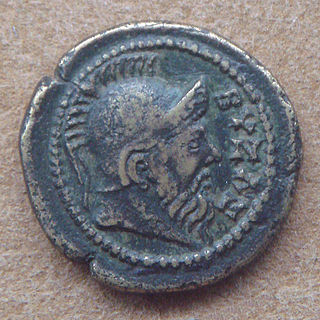 W
WIn Greek mythology, Byzas was the legendary founder of Byzantium, the city later known as Constantinople and then Istanbul.
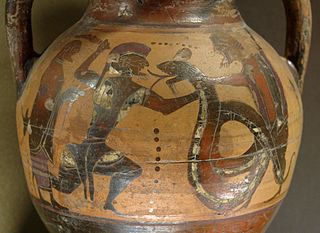 W
WIn Greek mythology, Cadmus, was the founder and first king of Thebes. Cadmus was the first Greek hero and, alongside Perseus and Bellerophon, the greatest hero and slayer of monsters before the days of Heracles. Commonly stated to be a Phoenician prince, son of king Agenor and queen Telephassa of Tyre and the brother of Phoenix, Cilix and Europa, he was originally sent by his royal parents to seek out and escort his sister Europa back to Tyre after she was abducted from the shores of Phoenicia by Zeus. In early accounts, Cadmus and Europa were instead the children of Phoenix. Cadmus founded the Greek city of Thebes, the acropolis of which was originally named Cadmeia in his honour.
 W
WDido, also known as Alyssa or Elissa, was the legendary founder and first queen of the Phoenician city-state of Carthage, located in modern Tunisia. Known only through ancient Greek and Roman sources, most of which were written well after Carthage's founding, her historicity remains uncertain. In most accounts, she was the queen of the Phoenician city-state of Tyre, today Ṣūr in Lebanon, who flees tyranny to found her own city in northwest Africa.
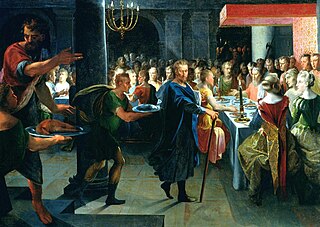 W
WFrancus is an invention of Merovingian scholars which referred to a legendary eponymous king of the Franks, a descendant of the Trojans, founder of the Merovingian dynasty and forefather of Charlemagne. In the Renaissance, Francus was generally considered to be another name for the Trojan Astyanax saved from the destruction of Troy. He is not considered to be historical, but in fact an attempt by medieval and Renaissance chroniclers to model the founding of France upon the same illustrious tradition as that used by Virgil in his Aeneid.
 W
WKyi, Shchek and Khoryv were three legendary brothers - often mentioned along with their sister Lybid - who, according to the Primary Chronicle, founded the medieval city of Kyiv, which eventually became the capital of present-day Ukraine. There is no precise and historically established information about the rule of Kyi and the establishment of the city of Kyiv.
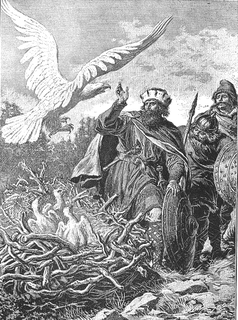 W
WLech, Czech and Rus refers to a founding myth of three Slavic peoples: the Poles, the Czechs, and the Russians. The three legendary brothers appear together in the Wielkopolska Chronicle, compiled in the early 14th century. The legend states that the brothers, on a hunting trip, followed different prey and thus travelled in different directions: Lech in the north, Czech in the west, and Rus in the East. There are multiple versions of the legend, including several regional variants throughout West Slavic, and to lesser extent, other Slavic countries that mention only one or two brothers. The three also figure into the origin myth of South Slavic peoples in some legends. Their stories are often, in some extent as well, used as a myth to understand the eventual foundation of Poland, Czech Republic and Russia, in accordance with the legend.
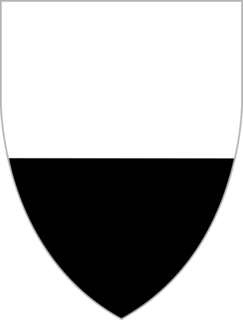 W
WSenius and Aschius are the two legendary founders of Siena, Italy. They were brothers, sons of Remus, and thus Romulus was their uncle.
 W
WIn Greek mythology Sisyphus or Sisyphos was the king of Ephyra. He was punished for his self-aggrandizing craftiness and deceitfulness by being forced to roll an immense boulder up a hill only for it to roll down every time it neared the top, repeating this action for eternity. Through the classical influence on modern culture, tasks that are both laborious and futile are therefore described as Sisyphean.
 W
WTenoch was a ruler of the Mexicas (Aztecas) during the fourteenth century during the Aztec travels from Aztlán to Tenochtitlan. Tenoch's father was Iztac Mixcoatl, who had a total of seven sons with two wives. The Tenochtitlan people were originally referred to as Tenochca, then the Mexica.
 W
WIn Greek mythology, Teucer, also Teucrus, Teucros or Teucris, was the son of King Telamon of Salamis Island and his second wife Hesione, daughter of King Laomedon of Troy. He fought alongside his half-brother, Ajax, in the Trojan War and is the legendary founder of the city of Salamis on Cyprus. Through his mother, Teucer was the nephew of King Priam of Troy and the cousin of Hector and Paris—all of whom he fought against in the Trojan War.